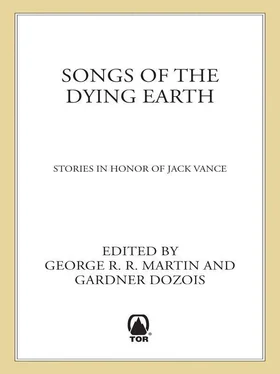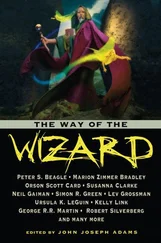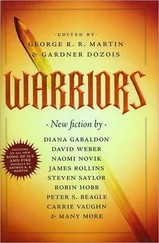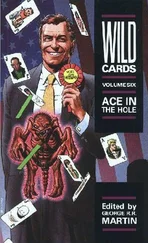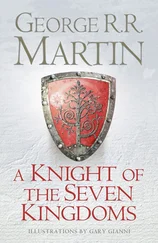SONGS OF THE DYING EARTH
Stories in Honour of Jack Vance
Edited by George R.R. Martin and Gardner Dozois
To Jack Vance, the maestro,
with thanks for all the great tales,
and for letting us play with your toys.
THANK YOU, MR. VANCE
by Dean Koontz
In 1966, at 21, fresh from college, I was a fool and possibly deranged, although not seriously dangerous. I was a well-read fool, especially in science fiction. For twelve years, I pored through at least a book a week in that genre. I felt that I belonged in one of the other worlds or far futures of those tales more than I did in the world and time in which I’d been born, less because I had a wide romantic streak than because I had low self-esteem and longed to shed the son-of-the-town-drunk identity that fate had given me.
During the first five years that I wrote for a living, I produced mostly science fiction. I was not good at it. I sold what I wrote — twenty novels, twenty-eight short stories — but little of that work was memorable, and some was execrable. All these years later, only two of those novels and four or five of those stories might not raise in me a suicidal urge if I reread them.
As a reader, I could tell the difference between great science fiction and the mediocre stuff, and I was drawn to the best, which I often reread. Considering that I was inspired by quality, I should not have turned out so many dreary tales. I was driven to write fast by economic necessity; Gerda and I had been married with $150 and a used car, and though bill collectors were not breaking down the door, the specter of destitution haunted me. A need for money, however, is an insufficient excuse.
In November of 1971, as I moved toward suspense and comic fiction and away from writing SF, I discovered Jack Vance. Considering the hundreds of science fiction novels I had read, I am amazed that I had not until then sampled Mr. Vance’s work. With the intention of reading him, I bought numerous paperbacks of his novels but never opened one, partly because the covers gave me a wrong impression of the contents. On my shelves today is an Ace edition of The Eyes of the Overworld , with a cover price of 45 cents, featuring Cugel the Clever in a flaring pink cape against a background of cartoonish mushrooms like giant genitalia. A 50-cent Ace edition of Big Planet features well-rendered men with ray guns riding badly drawn alien beasts of dubious anatomy. The first book I read by Jack Vance, in November 1971, was Emphyrio , published at the budget-busting price of 75 cents. The cover illustration — perhaps by Jeff Jones — was sophisticated and mystical.
Every writer has a short list of novels that electrified him, that inspired him to try new narrative techniques and fresh stylistic devices. For me, Emphyrio and The Dying Earth are such books. Enthralled with the former, I finished the entire novel without getting up from my armchair, and the same day I read the latter. Between November of 1971 and March of 1972, I read every Jack Vance novel and every piece of his short fiction published to that time — and although many more books were to come, even then he had a long bibliography. Only two other authors have so captivated me that for a time I became immersed in their work to the exclusion of all other reading: on discovering John D. MacDonald, I read thirty-four of his novels in thirty days; and after stubbornly avoiding the fiction of Charles Dickens through high school and college, I read A Tale of Two Cities in 1974 and, over the next three months, every word of fiction Dickens published.
Three things in particular fascinate me about Mr. Vance’s work, the first being a vivid sense of place. Far planets and distant future Earths are so well portrayed that they expand like real and fully colored vistas in the mind’s eye. This is achieved by many means, but primarily by close attention to architecture, first the architecture of key buildings; and in architecture I include interior design. The opening chapters of The Last Castle or The Dragon Masters contain excellent examples of this. Furthermore, when Jack Vance describes the natural world, he does so in the manner neither of a geologist nor a naturalist, nor even as a poet might describe it, but again with an eye for the architecture of nature, not merely of its geological features but also of its flora and fauna. The appearance of things does not intrigue him as much as does their structure . Consequently, his descriptions have depth and complexity from which images arise in the reader’s mind that are in fact poetic. This fascination with structures is evident in every aspect of his fiction, whether it is the structure of languages in The Languages of Pao or the structure of a system of magic in The Dying Earth ; and in every novel and novelette he has written, alien cultures and far-future human societies ring true because he gives us the matrix and the lattice, the foundation and the framing on which the visible walls are stood and hung.
The second quality of Mr. Vance’s fiction that fascinates me is his masterly evocation of mood. Each of his works features a subtly modified syntax, scheme of imagery, and coherent system of figures of speech unique to that tale, usually in the service of the implicit meaning but always in the service of mood, which itself grows from his subtext, as it should. I am a sucker for mood. I can forgive a writer many faults if he has the capacity to weave a warp and weft of mood from page one to the end of his story. One of the great things about Jack Vance is that the reader is enthralled by the mood of each piece without having to overlook any faults.
Third, although the people in a Vance science-fiction novel are less real than those in the few mystery novels that he wrote, and are constricted by the conventions of a genre that for many decades valued color and action and cool ideas above characters with depth, they are memorable and, over the body of his work, reveal that the author puts much of himself in the cast members of his tales. The recognition of the author intimately threaded through the tapestry of key characters exposed to me, back there in 1971 and ’72, a primary reason why my science fiction often failed: as a child raised in poverty and always-pending violence, I had read science fiction largely for escape; therefore, as a writer, I was loath to draw upon my most intense life experiences when writing SF, but instead usually wrote it as sheer escapism.
In spite of the exotic and hypercolorful nature of Jack Vance’s work, reading so much of his fiction in such a short time led me to the realization that I was withholding my soul from the stories that I wrote. If I had remained in science fiction after this moment of enlightenment, I would have written books radically different from those that I had produced between 1967 and 1971. But I immersed myself in the Vance universe as I was moving on to suspense novels like Chase and comic novels like Hanging On ; consequently, the lesson I learned from him was applied to everything I wrote after leaving his preferred genre.
I know nothing about Jack Vance’s life, only the fiction that he has written. During those five months in 1971 and ’72, however, and every time I have read a Vance novel in the years since, I have known I am reading the work of someone who enjoyed a largely happy childhood and perhaps an idyllic one. If I’m wrong about this, I don’t want to be corrected. When I settle into a Vance story, I see the sense of wonder and the confidence and the generous spirit of someone who was given a childhood and adolescence free from fear and without want, who used those years to explore the world and, through that exploration, came to embrace it with exuberance. Although my journey to a happy adulthood followed a dark and sometimes desperate path, I do not envy Jack Vance if his route was sunnier; instead, I delight in the worlds of wonder that his experiences made it possible for him to create, and not least of all in that singular world that awaits its end under a fading sun.
Читать дальше
